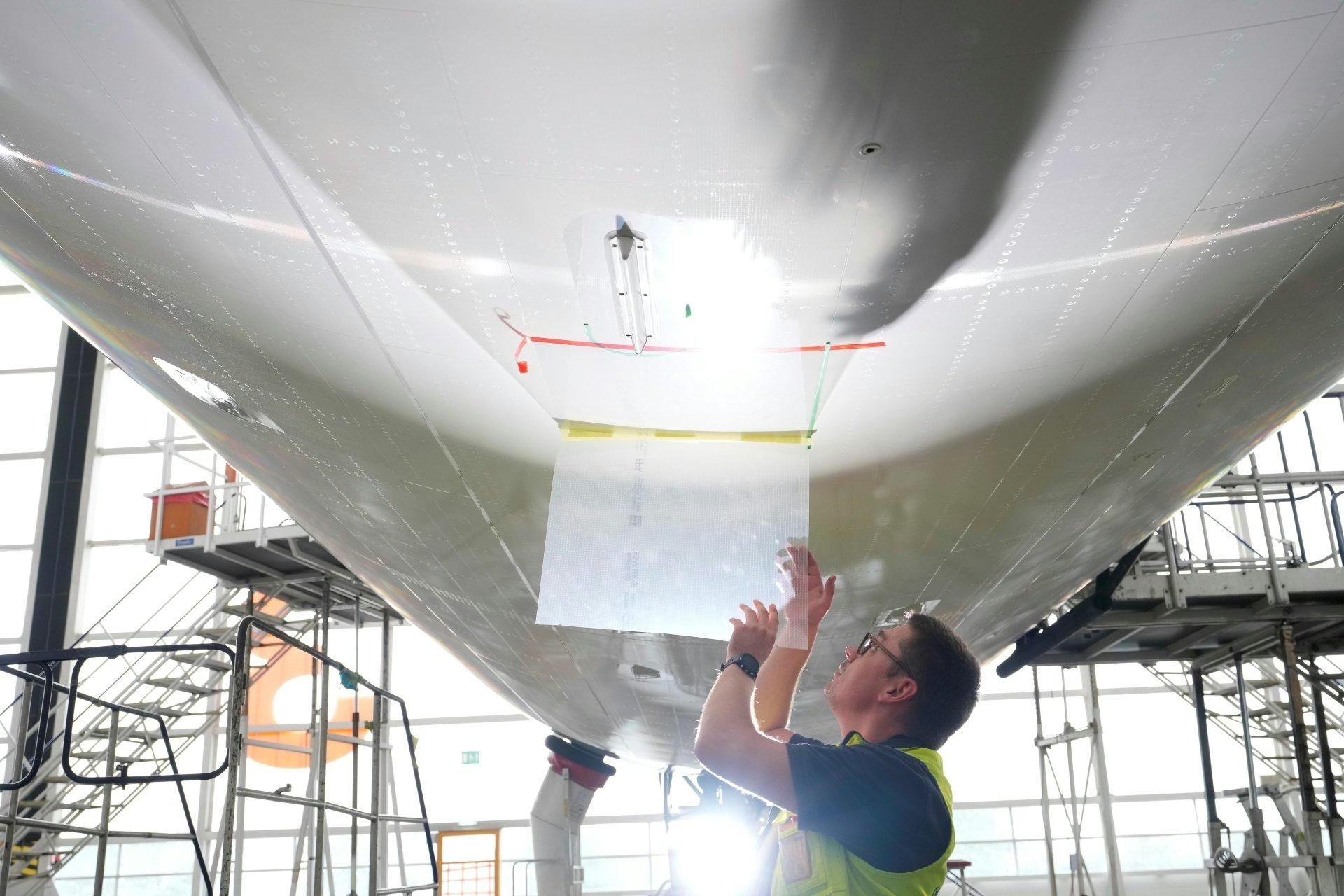AeroGenie — Tu copiloto inteligente.
Tendencias
Categories
easyJet Completes FANS-C Upgrade

easyJet Completes FANS-C Upgrade Amid Industry Shifts and Competitive Pressures
easyJet has successfully completed the retrofit of FANS-C technology across 54 of its Airbus A320 and A321neo-family aircraft, marking a pivotal advancement in the airline’s ongoing efforts to modernise its fleet and operational capabilities. Moving forward, all new Airbus deliveries to easyJet will come equipped with FANS-C as a standard feature.
Enhancing Air Traffic Management and Environmental Impact
FANS-C, an advanced air traffic management system, facilitates improved collaboration between pilots and air traffic controllers by enabling faster, more reliable communication and optimised in-flight trajectories. This technology addresses the increasing congestion in European airspace, where delays have become a persistent challenge. By transmitting precise trajectory data to air traffic control, FANS-C reduces the need for holding patterns, expedites clearances, and enhances overall punctuality.
David Morgan, easyJet’s Chief Operating Officer, highlighted the critical role of such technological upgrades in modernising airspace management while simultaneously reducing fuel consumption, carbon emissions, and noise pollution. He underscored, however, that the full potential of FANS-C can only be realised through comprehensive airspace reform, including the implementation of more direct routing. While the UK government has initiated the redesign of national airspace, Morgan urged for the swift and coordinated execution of these plans across both the UK and Europe.
Since its introduction in 2019, FANS-C has enabled easyJet to save 1,052 tonnes of CO2 equivalent and 334 tonnes of fuel within Eurocontrol’s Maastricht Upper Area Control region. These savings are expected to increase as more air navigation service providers upgrade their systems, a mandate set to be fulfilled across the European Union by 2028. The FANS-C rollout forms a central component of easyJet’s broader environmental strategy, launched in 2022, which also encompasses investments in new aircraft, enhancements in fuel efficiency, and efforts to minimise emissions both on the ground and in flight.
Challenges and Competitive Landscape
Despite these technological advancements, easyJet faces several operational and market challenges. The integration of FANS-C with existing systems and the process of securing regulatory approvals remain complex and demanding. Investor sentiment has been cautious, with the airline’s share price experiencing recent declines and its third-quarter financial results under close scrutiny for indications of recovery.
The competitive environment is also evolving rapidly. Rivals may accelerate similar technological upgrades or adjust their strategic approaches to maintain or improve their market positions. Notably, Wizz Air’s recent decision to reduce its A321XLR order and restrict future operations to the UK market could have significant implications for competition within the low-cost airline sector.
By implementing FANS-C across its fleet, easyJet aims to enhance on-time performance, reduce its environmental footprint, and position itself for a more integrated and efficient European airspace system. With regulatory changes anticipated and competitors adapting their strategies, the airline expects its investment in advanced technology to yield both operational efficiencies and environmental benefits in the coming years.

Emirates Unveils Cabin Design for New Boeing 777X

Eighteen Years On, the Airbus A380 Remains Central to a $34 Billion Airline

How a boom in luxury airline seats is slowing down jet deliveries

Navitaire Outage Attributed to Planned Maintenance

DigiYatra Debuts Outside Aviation at India AI Impact Summit

Vietnam Orders Strengthen Boeing’s Commercial Outlook

Airbus Signals Uncertainty Over Future A400M Orders

JobsOhio Awards $2 Million Grant to Hartzell Propeller for Innovation Center

Collins Aerospace Tests Sidekick Autonomy Software on YFQ-42A for U.S. Air Force CCA Program

How the Airbus A350-1000 Compares to the Boeing 777
